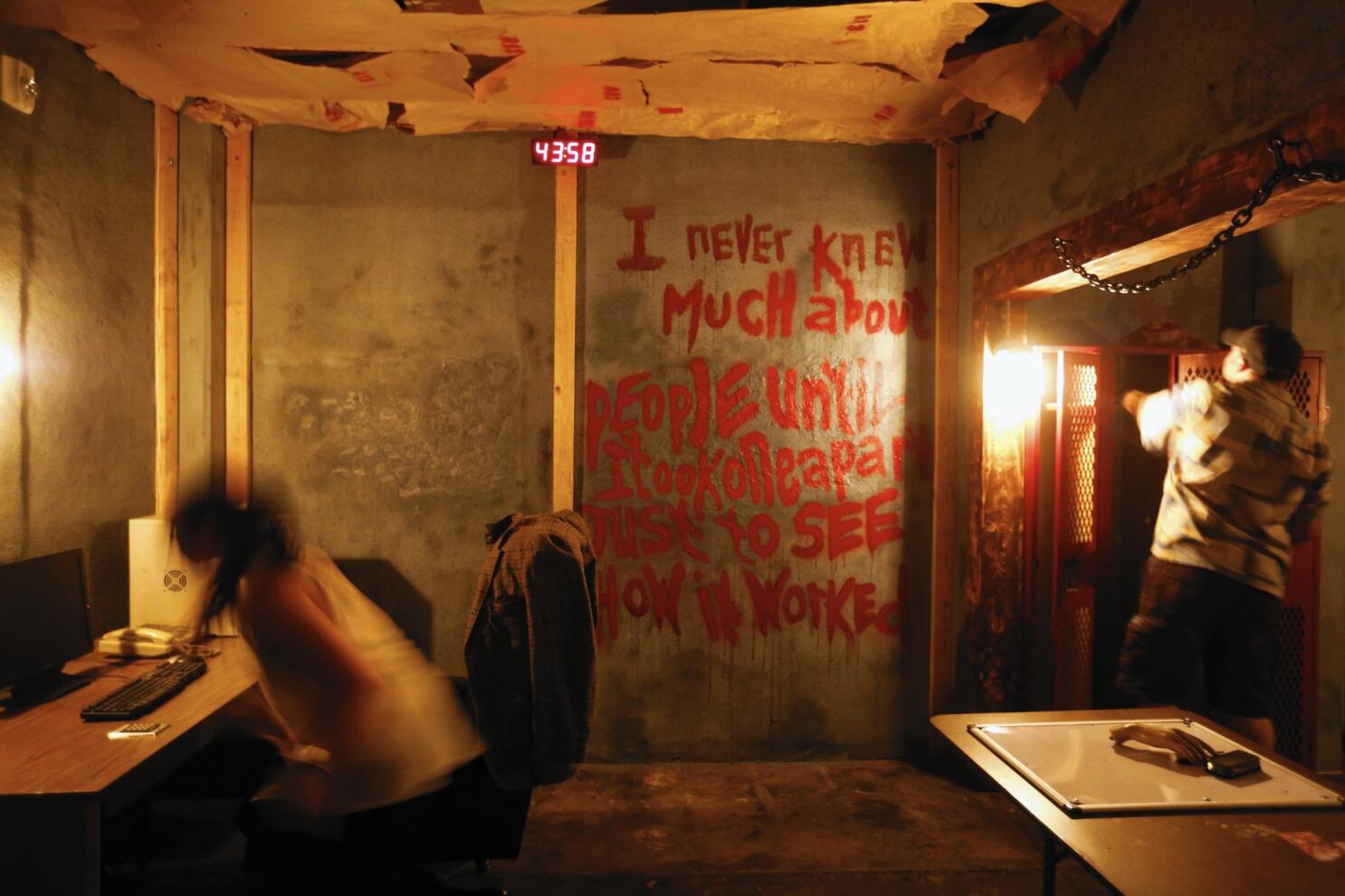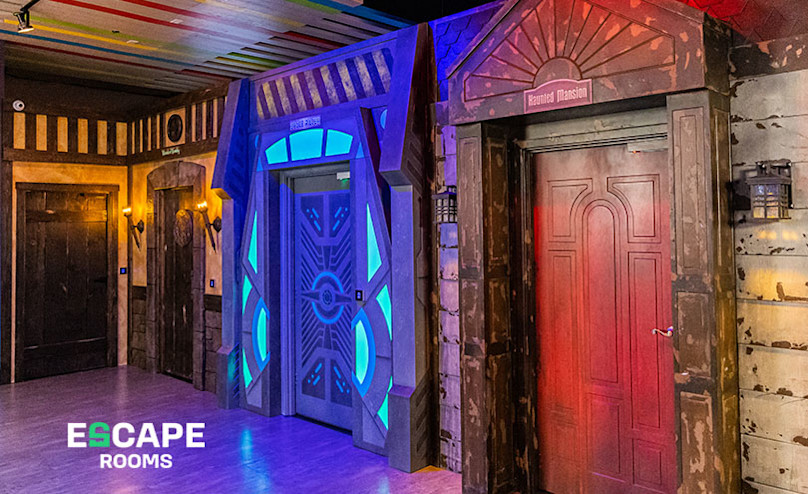Minneapolis Escape Room-- Interesting Problem Obstacles for All Ages
Minneapolis Escape Room-- Interesting Problem Obstacles for All Ages
Blog Article
Group Approaches: Just How to Team up Successfully in an Escape Room
Navigating the intricacies of a getaway space requires more than simple excitement; it needs a well-coordinated technique grounded in clear interaction, calculated function projects, and skilled time monitoring. Teams should actively pay attention per participant's understandings, designate functions that align with private strengths, and keep routine check-ins to make sure focus and prevent redundancy. By cultivating an environment that values communication and flexibility, groups can substantially heighten their effectiveness and success rates. The nuances of these approaches can change the experience, yet how precisely can they be implemented to take full advantage of the possibility for success?
Establish Clear Interaction

To assist in clear interaction, it is vital to assign a central point of get in touch with for details dissemination. Quick, concentrated updates from each team member can keep the group educated without frustrating them with details.

Appoint Functions Purposefully
While clear communication establishes the foundation for reliable teamwork, assigning duties tactically guarantees that each employee's toughness are used successfully. In a retreat room circumstance, the time-sensitive and intricate nature of obstacles necessitates an efficient method to job delegation. By identifying and leveraging private competencies, teams can optimize their problem-solving abilities and boost general performance.
A person with an eager eye for information may excel in finding covert items, while a logical thinker could be better matched to solving puzzles. This function commonly calls for strong business and social abilities.
Second, guarantee that functions are versatile and versatile. As brand-new obstacles arise, the group must be able to pivot, reallocating jobs as required. This versatility helps maintain momentum and stops bottlenecks that might occur because of rigid function tasks.
Inevitably, a strategic approach to duty assignment not just makes best use of the strengths of each team member but additionally cultivates a natural atmosphere, driving the team towards a successful retreat.
Make Use Of Diverse Skills
Identifying and using the varied abilities within your team can substantially boost your performance in a retreat room. Each team participant brings distinct strengths to the table, and effectively leveraging these capabilities can quicken analytical and boost general performance. As an example, an employee with solid logical skills may excel at deciphering complicated codes or patterns, while an additional with keen empirical abilities may rapidly identify surprise ideas that others may forget.
Effective interaction is vital to utilizing these diverse abilities. Encourage team participants to articulate their insights and concepts promptly, making sure that all possible options are considered. This inclusive method promotes a vibrant environment where creativity and vital reasoning can grow. Furthermore, designating jobs that line up with each participant's toughness can avoid bottlenecks and guarantee that progression is continuous.
Additionally, variety in skills frequently converts to variety in believing styles, which is invaluable in a retreat room setup. While some obstacles may need sensible thinking and precision, others could gain from imaginative and association of ideas. By identifying and leveraging this variety, groups can deal with a broader variety of challenges extra successfully, thus increasing their opportunities of a successful escape.
Manage Time Efficiently

Identify noticeable challenges and divide jobs based on group members' strengths, making certain that no one is still. This method can help maintain the browse around these guys team concentrated and stop time from slipping away undetected.
In addition, prevent one-track mind. If a puzzle is taking also long, rotate staff member or move on to another challenge, returning later on with fresh viewpoints. Interaction is critical-- keep everyone upgraded on resolved problems and continuing to be tasks to avoid repetitive efforts.
Finally, utilize any type of hints or hints moderately however strategically - best escape room. Recognizing when to request for aid can save valuable time. By adhering to these time management concepts, teams can dramatically improve their opportunities of an effective and satisfying retreat room experience
Debrief and Show
Reflection is an important element of group development and enhancement in the context of getaway areas. Once the difficulty is completed, whether successfully or otherwise, it is crucial for the team to take part in an organized debriefing session. This procedure permits team members to assess their efficiency, identify staminas, and determine locations for enhancement.
Start the debrief by reviewing what went well. Highlight details instances of effective interaction, analytical, and cooperation. Acknowledging these positive habits reinforces them and motivates their repeating in future obstacles.
Next, deal with the obstacles came across. basics Review moments of confusion, miscommunication, or ineffective methods. Urge an open and positive dialogue where staff member can share their perspectives without fear of criticism. This cultivates a culture of constant renovation and understanding.
Final Thought
In conclusion, effective collaboration in an escape room is based upon clear communication, strategic function tasks, the reliable usage of varied skills, and skillful time management. By producing a natural and adaptive group atmosphere, the possibility of successfully resolving problems and achieving the purpose of leaving the area is dramatically improved.
Report this page